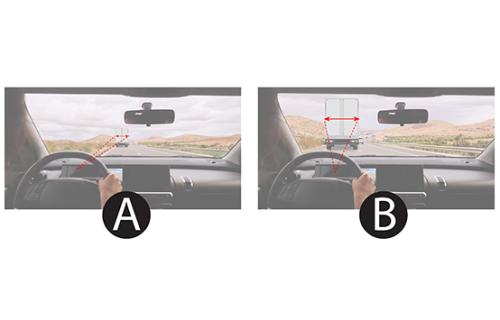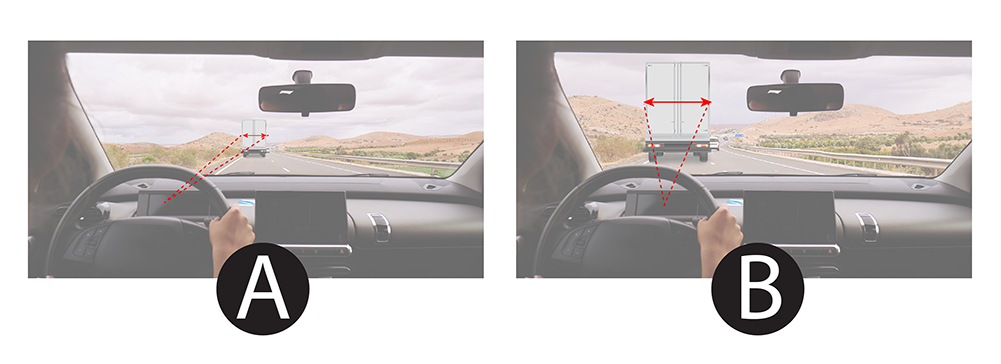| 1/27/2023 |
Divorce Data and Spying - Ethical and Legal Implications |
AZBar 2023 Family Law Institute featuring For Better or For Worse® |
Remote - Arizona |
| 2/25/2022 |
Intellectual Property Security Threats: How Do I Keep My Laptop/Desktop/Server Safe? |
Florida Registered Paralegal Enrichment Committee |
Remote - Florida |
| 11/18/2021 |
Prosecuting and Defending Car and Truck Cases - Rolling Treasure Troves of Data |
Texas Bar Association |
Houston Texas |
| 10/01/2021 |
Cybersecurity & Digital Safety |
Special Needs Alliance / Elder Law Alliance |
Tucson, AZ |
| 09/24/2021 |
Case Studies in Trucking Case Digital Evidence & Manipulation |
Academy of Truck Accident Attorneys / ATAA |
Austin, Texas |
| 06/28/2021 |
Cell Phone & Mobile Evidence Investigating Tips |
NJAJ - New Jersey Association for Justice |
Atlantic City NJ |
| 06/07/2021 |
Investigating Digital Evidence in Heavy Truck Crashes |
WTLA - Western Trial Lawyers Association |
Maui Hawaii |
| 03/16/2021 |
Case Studies in Electronic Medical Record Data Manipulation |
American Association of Legal Nurse Consultants / AZ Chapter |
Phoenix Az |
| 11/30/2020 |
Cell Phone & Digital Evidence Investigating Tips |
Arizona Bar Association |
Phoenix AZ / Online |
| 10/23/2020 |
Digital Evidence Collection and Analysis |
Florida Bar Association |
Online / Miami FL |
| 08/05/2020 |
Cell Phone and Vehicle Evidence in Criminal and Civil cases |
New Jersey Association for Justice |
Atlantic City NJ |
| 05/27/2020 |
Fabricated PDF Documents / Digital Document Forensics / PDF forensics |
Scientific Association of Forensic Examiners |
Online / International |
| 05/14/2020 |
Cell Phone & Digital Evidence Investigating Tips |
Texas Trial Lawyers - Austin |
Austin Texas |
| 03/06/2020 |
Computer Forensics & Digital Evidence in the Real World |
Western Trial Lawyers Association |
Jackson Hole, WY |
| 02/28/2020 |
Metadata: Who, What, How, When, and Why |
Arizona Attorneys for Criminal Justice |
Phoenix, Arizona |
| 01/21/2020 |
E-Discovery & The Digital Law Firm |
Consultwebs / Lawsome Pod Cast |
Online, Nationwide |
| 10/16/2019 |
The 6 Top Ways to Grow Your Firm 100% in 3 Years |
Law Coaching |
Online, Nationwide |
| 09/28/2019 |
Spy Technology - What you need to know to keep yourself safe! |
Women Presidents’ Organization |
Tubac, Arizona |
| 09/28/2019 |
Digital Evidence, Data & Security |
Women Presidents’ Organization |
Tubac, AZ |
| 09/18/2019 |
Vehicles: Rolling Treasure Troves of Data - Black Boxes in Cars & Trucks - In Vehicle Entertainment Systems |
Northwest Suburban Bar Association |
Chicago, Illinois |
| 05/15/2019 |
Technology in your Expert Witness Practice |
Forensic Expert Witness Association - Phoenix Chapter |
Phoenix, Arizona |
| 05/08/2019 |
Electronic Data Discovery - Cell Phone Technology |
New Jersey Association for Justice - NJAJ |
Atlantic City, NJ |
| 04/19/2019 |
Electronic Medical Record Forensics - Audit Trails |
Jones, Skelton & Hochuli, P.L.C. |
Phoenix Arizona |
| 04/15/2019 |
Electronic Health Records: Audit trails and audit logs |
American Bar Association Nursing & Allied Healthcare Professionals Taskforce |
On Line - Nationwide |
| 03/21/2019 |
Dealing with Digital Forensics Evidence in Financial Investigations |
Accounting & Financial Women's Alliance: AFWA |
Phoenix, AZ |
| 03/18/2019 |
Digital Evidence & Cyber Forensics |
Arizona Women Lawyers Association |
Tucson, AZ |
| 03/02/2019 |
Cyber Evidence is Everywhere! |
Western Trial Lawyers Association |
Park City, UTah |
| 02/22/2017 |
Vehicles: Rolling Treasure Troves of Data |
Illinois State Bar Association |
Chicago, Il |
| 02/10/2019 |
E-Discovery (Computer, Electronic & Digital Evidence) |
Mississippi Legal Professionals Association, Madison, MS - Cruise To Learn |
New Orleans, Louisiana |
| 12/07/2018 |
Vehicles: Rolling Treasure Troves of Data and Evidence |
Arizona Association for Justice |
Phoenix, AZ |
| 11/14/2018 |
Marketing for Expert Witnesses / Social Media Expert |
Forensic Expert Witness Association - Arizona Chapter |
Phoenix, AZ |
| 10/04/2018 |
Cyber Security & The Future of Technology |
Mark Silverman and Silverman + Associates |
Tucson, AZ |
| 09/13/2018 |
Digital Evidence & Cyber Forensics |
Supreme Court of Ohio - Judicial College |
Columbus, Ohio |
| 06/22/2018 |
Digital and Electronic Data Safety Precautions - How to Keep Your Data Safe |
Annual Arizona Public Defender Association Statewide Conference |
Phoenix, AZ |
| 06/21/2018 |
Email, The Smoking Gun of Communications |
Annual Arizona Public Defender Association Statewide Conference |
Tempe Arizona |
| 06/01/2018 |
Electronic Data Safety - How to Protect Your Personal Information |
University of Arizona - Office of the General Counsel - Arizona Classified Staff Council |
Tucson, AZ |
| 05/21/2018 |
Intellectual Property Security Threats: How Do I Keep my Laptop/Desktop/Server Safe |
State Bar of Arizona - Intellectual Property Section |
Tucson, AZ |
| 05/16/2018 |
Electronic Evidence in Personal Injury Case |
South Plains Trial Lawyers |
Lubbock Texas |
| 05/09/2018 |
Cell Phone & Computer Data Retrieval |
NJAJ Educational Foundation |
Atlantic City, NJ |
| 05/09/2018 |
EMR - Electronic Medical Record Forensics |
New Jersey Association for Justice Educational Foundation |
Atlantic City, New Jersey |
| 03/13/2018 |
Electronic Medical Record Forensics - EMR Forensics |
AALNC - American Association of Legal Nurse Consultants, Arizona Chapter |
Phoenix, Arizona |
| 02/16/2018 |
Big Cases in the Big Easy: Commercial Vehicles and Workplace Injuries:Telematics and Cellphone Investigating Tips |
Texas Trial Lawyers Association |
New Orleans, LA |
| 01/24/2018 |
Prevent IP Theft: Protect Your Most Valuable Assets from Employee and Vendor Theft |
Arizona Technology Counsel - Flyer Promo Code: "EvidenceVIP" |
Tucson, Arizona |
| 01/18/2018 |
Digital Evidence in Personal Injury Cases |
El Paso County Trial Lawyers Association |
El Paso Texas |
| 01/05/2018 |
Trust The Data NOT The Software |
Maricopa County Bar Association - Flyer |
Phoenix AZ |
| 12/02/2017 |
Electronic Medical Record Forensics / EMR Forensics |
Arizona MedMal Attorneys |
Phoenix Arizona |
| 10/25/2017 |
Case Studies in Electronic Medical Record Data Manipulation |
American Association of Legal Nurse Consultants |
Online |
| 10/19/2017 |
The Ethics of Digital Documents, Evidence & More |
American Academy of Matrimonial Lawyers / Southwest Divorce Conference
|
Phoenix Arizona |
| 10/12/2017 |
Safety and Security in the Dangerous Digital World |
Falbaum Investment Group - RBC Wealth Management
|
Tucson, AZ |
| 10/07/2017 |
Discovery and Social Media Forensics in Medical Malpractice Cases - EMR Forensics |
Juris Educational Resource Knowledge. J.E.R.K. LNC
|
Raleigh, North Carolina |
| 10/06/2017 |
Digital Assets in Estates |
NALS - National Association of Legal Professionals
|
Norfolk, VA |
| 10/05/2017 |
Civil Litigation and the use of Social Media |
National Association of Legal Professionals - NALS
|
Norfolk, VA |
| 09/15/2017 |
Digital Evidence in the Business Setting |
Tucson Paralegal Association
|
Tucson, AZ |
| 09/13/2017 |
Technology Seminar |
Southern Arizona Estate Planning Council
|
Tucson, AZ |
| 09/11/2017 |
Digital Evidence in Personal Injury Cases |
Mississippi Personal Injury List Server
|
Online - MS |
| 08/25/2017 |
Electronically Stored Information (ESI) |
Scientific Association of Forensic Examiners (SAFE)
|
Online |
| 07/26/2017 |
How do I keep my laptop/desktop/server safe? |
Society of Financial Examiners (SOFE) Career Development Seminar (CDS)
|
Marco Island, FL |
| 07/26/2017 |
To encrypt or not encrypt? - That's not a question! |
Society of Financial Examiners (SOFE) Career Development Seminar (CDS)
|
Marco Island, FL |
| 07/23/2017 |
Cell Phone Forensics |
AAJ - Distracted Driving Litigation Group
|
Boston, MA |
| 07/11/2017 |
Personal Injury Cases and Why Digital Evidence can be Key |
Capital Area Trial Lawyers Association
|
Austin, Texas |
| 06/22/2017 |
Cell Phone Evidence: Tweets, Snapchats, and Messaging |
Annual Arizona Public Defender Association Statewide Conference
|
Phoenix, AZ
|
| June 2017 |
Technology Basics: You Can do That?!? |
Arizona Supreme Court
Arizona Judicial Conference 2017
|
Phoenix, AZ |
| 06/09/2017 |
Ethics in Digital Evidence Collection |
Maricopa County Bar Association - Flyer
|
Phoenix, AZ |
| 06/05/2017 |
Project Management in a Digital Forensics Setting |
University of Alaska - Fairbanks
|
Online |
| 05/15/2017 |
Computer & Cell Phone Forensics in Personal Injury Litigation |
San Antonio Texas Trial Lawyers Association |
San Antonio, TX |
| 05/11/2017 |
Forensic Medical Record Reviews. Electronic Medical Record (EMR) Forensics. |
West Virginia State Chapter of the American Association of Legal Nurse Consultants (AALNC)
|
Online |
| 05/04/2017 |
Digital Evidence in the Business Setting
From Prevention to Recovery: Protecting Your Company from Employee IP Data Theft
|
Snell & Wilmer |
Tucson, Arizona |
| 04/19/2017 |
Social Media Strategies for Expert Witnesses |
Forensic Expert Witness Association (FEWA) Arizona Chapter
|
Phoenix, Arizona |
| 04/15/2017 |
Cell Phone Evidence in Trucking Accident Cases |
Keenan Law Firm
|
Atlanta, Georgia |
| 03/16/2017 |
Cyber Risk Management - Small Business - Personal &
Spy Technology in Marital Issues & Divorces: Electronic Forensics |
Accounting and Financial Women's Alliance
|
Phoenix, AZ |
| 01/18/2017 |
Digital Evidence Collection in Personal Injury Cases |
Permian Basin Trial Lawyers
|
Odessa, Texas |
| 12/02/2016 |
Using the Internet to Assist During Trial Preparation |
Maricopa County Paralegal Association
|
Phoenix, AZ |
| 11/15/2016 |
Digital Evidence in Fraud Cases |
Association of Certified Fraud Examiners - Phoenix Arizona Chapter
www.cfe-arizona.org
|
Phoenix, AZ |
| 11/02/2016 |
Electronic Records: How and Why to Protect, Preserve, Or Destroy |
Udall Law Firm, Lovitt and Touche, Sasiadeks
|
Tucson, AZ |
| 10/18/2016 |
Digital Evidence Collection in the Cloud |
Cloud Security Alliance - Southwest Chapter
|
Tempe, AZ |
| 09/13/2016 |
Digital Evidence in Personal Injury Cases |
East Texas Trial Lawyers Association
|
Longview, TX |
| 08/05/2016 |
Digital Evidence in Motor Vehicle Accident Cases |
AIEG
|
Chicago, IL |
| 08/04/2016 |
Security Roundtable |
Society of Financial Examiners (SOFE) CDS
|
Indianapolis, IN |
| 08/04/2016 |
Real World Incident Repsonse |
Society of Financial Examiners (SOFE) CDS
|
Indianapolis, IN |
| 08/03/2016 |
Hidden Threats |
Society of Financial Examiners (SOFE) CDS
|
Indianapolis, Indiana |
| 07/23/2016 |
Electronic Logging Devices (ELD) Forensics |
American Association for Justice - Trucking Litigation Section |
Los Angeles, CA |
| 06/21/2016 |
Audit Trails in Medical Malpractice Cases |
Juris Educational Resource Knowledge
|
On Line |
| 05/18/2016 |
Digital Evidence in Personal Injury Cases
Slide Deck #2
|
Tarrant County Trial Lawyers Association
|
Fort Worth, TX |
| 05/05/2016 |
Cyber Risk Management & Mitigation |
NeighborWorks America
|
Los Angeles, CA |
| 04/29/2016 |
How to Use the Internet to Investigate Jurors, Clients & Opposing Parties |
Georgia Trial Lawyers Association
|
Atlanta, GA |
| 04/21/2016 |
Cell Phones & Their Place in Accident Cases |
Dallas Trial Lawyers
|
Dallas, Texas |
| 04/06/2016 |
Digital Evidence Gone Wild!
Trust the data, NOT the software! |
New Jersey Association for Justice -
www.nj-justice.org
|
Atlantic City, NJ |
| 04/03/2016 |
Automobile Accident Digital Evidence: Cell Phone Forensics, Text Messaging Forensic Analysis, Dash Cam Forensics |
360 Advocacy
|
Las Vegas, NV |
| 03/08/2016 |
Discovery and Social Media Forensics in Medical Malpractice Cases |
American Association of Legal Nurse Consultants, Arizona Chapter
|
Phoenix, AZ |
| 01/25/2016 |
Data Privacy For Investigators |
Collision Publishing Inc. / CDR Summit
|
Houston TX |
| 10/22/2015 |
Electronic Evidence |
American Academy of Matrimonial Lawyers
|
Phoenix, AZ |
| 10/15/2015 |
Identity Theft Prevention & Recovery |
Accounting & Financial Women's Alliance (formerly American Society of Women Accountants)
|
Phoenix, AZ |
| 10/09/2015 |
Spy Technology in Marital Issues & Divorces: Electronic Forensics. |
National Association for Legal Professionals (NALS) National Forum
|
Las Vegas, NV |
| 09/16/2015 |
Digital & Computer Security. How to keep Medical Record Systems Safe |
Leading Age - Phoenix, AZ |
Sun City, AZ |
| 08/24/2015 |
Security Threats |
GTC: State of California Government Employees |
Sacramento, CA |
| 08/25/2015 |
Database Security |
GTC: State of California Government Employees
|
Sacramento, CA |
| 08/26/2015 |
Disaster Recovery |
GTC: State of California Government Employees
|
Sacramento, CA |
| 08/21/2015 |
Computer Forensics in Fraud Investigations |
Association of Certified Fraud Examiners - Arizona Chapters Joint Meeting
www.cfe-arizona.org
|
Tucson, AZ |
| 06/24/2015 |
Electronic Medical Record Forensics - Friend or Foe |
State Bar of Arizona - Annual Convention AZBar.org
|
Phoenix, AZ |
| 06/18/2015 |
Computer Forensics & Cell Phone Forensics |
Annual Arizona Public Defender Association Statewide Conference
www.apda.us/conference.aspx
|
Phoenix, AZ |
| 06/02/2015 |
Legal Ramifications of Drone Use in Accident Investigations |
ARC-CSI Crash Conference
www.arccsi.com
|
Las Vegas, NV |
| 05/29/2015 |
The use of computer forensics in detecting fraud. Digital Evidence and Forensic Investigations. (Prezi)
|
4th Annual Chicagoland Fraud Conference
Institute of Internal Auditors (IAA)
Association of Certified Fraud Examiners (ACFE)
Chicagoland Fraud Conference on Facebook
|
Chicago, IL |
| 05/07/2015 |
Social Media Forensics & Internet Forensics: The Good, The Bad & The Ugly / Social Media Forensics |
Ohio Association for Justice - www.OAJustice.org |
Columbus, OH |
| 04/29/2015 |
TAP-INTO-THE-LINE: Retrieval of Cell Phone Data / Cell Phone Forensics
Slide Deck
|
New Jersey Association for Justice -
www.nj-justice.org |
Atlantic City, NJ |
| 01/16/2015 |
Electronic Evidence Issues in Family Law |
For Better or For Worse State Bar of Arizona American Academy of Matrimonial Lawyers |
Scottsdale, AZ |
| 01/13/2015 |
Cyber Forensics in Electronic Medical Records (EMR) - Electronic Health Records (EHR) |
Phoenix AZ. Chapter of the American Association of Legal Nurse Consultants - aalnc-phoenix.org |
Phoenix, AZ |
| 01/08/2015 |
Computer Forensics |
Arizona Attorneys for Criminal Justice |
Phoenix, AZ |
| 11/20/2014 |
Data Falsification |
National Association for Legal Professionals (NALS) - Tucson & Southern Arizona |
Tucson, AZ |
| 11/13/2014 |
Spy Technology in Marital Issues & Divorces |
National Association for Legal Professionals (NALS) |
Online - Nationwide. |
| 11/11/2014 |
Cyber Forensics in Electronic Medical Records (EMR) - Electronic Health Records (EMR) |
Phoenix AZ. Chapter of the American Association of Legal Nurse Consultants
aalnc-phoenix.org |
Phoenix,
AZ |
| 10/19/2014 |
Cellphone/Smartphone Forensics - Advanced Course |
360 Advocacy |
Las Vegas, Nv |
| 10/16/2014 |
Black Box data & Cell Phones: How the data is collected and how it is used in litigation. |
Arizona Insurance Claims Association |
Phoenix, AZ |
| 10/02/2014 |
Digital Evidence in Family Law Cases |
Dickinson Wright, PLLC |
Phoenix, AZ |
| 09/27/2014 |
Changes in Digital Forensics & Evidence Technology |
Arizona Association of Licensed Private Investigators (AALPI.Org) |
Chandler, AZ |
| 09/25/2014 |
Zubulake v. UBS Warburg: Ten Years Later. The latest in Litigation Holds/ESI |
Arizona Bar Association: Employment & Labor Law Section |
Tucson, AZ |
| 08/25/2014 |
Database Security |
California State Training Week |
Sacramento, CA |
| 07/29/2014 |
Trust the Data Not the Software: An Exploration of data Falsification |
Society of Financial Examiners (SOFE) CDS |
Philadelphia, PA |
| 07/28/2014 |
Examinations of Enterprise Risk Management and ORSA capabilities Social Engineering: How YOU Are the hacker’s greatest tool (and what you can do to prevent it!) |
Society of Financial Examiners (SOFE) CDS |
Philadelphia PA |
| 07/28/2014 |
Managing Digital Evidence & Assets |
Society of Financial Examiners (SOFE) CDS |
Philadelphia PA |
| 07/17/2014 |
Electronic Evidence |
National Association for Legal Professionals (NALS) - Tucson & Southern Arizona |
Tucson, AZ |
| 06/11/2014 |
Security in the Cloud |
GTC: State of Texas Government Employees |
Austin, TX |
| 06/10/2014 |
Security Threat Update and Risk Management Day 2 |
GTC: State of Texas Government Employees |
Austin, TX |
| 06/09/2014 |
Security Threat Update and Risk Management Day 1 |
GTC: State of Texas Government Employees |
Austin, TX |
| 06/07/2014 |
Company Data in Trucking Cases |
Association of Plaintiff Interstate Trucking Lawyers of America (APITLA) |
St Louis, MO |
| 03/13/2014 |
"Electronic Data Forensics & Black Boxes." |
National Association for Legal Professionals (NALS) |
Online / Nationwide |
| 02/05/2014 |
Chain of Custody & Forensics |
Information Systems Security Association (ISSA) |
Tucson, AZ |
| 11/15/2013 |
Electronic Discovery & Technology Forensics |
Rhode Island Association for Justice |
Providence Rhode Island |
| 10/10/2013 |
Electronically Stored Information in Litigation |
Attorneys Information Exchange Group (AIEG) - AAJ |
Scottsdale, AZ |
| 10/08/2013 |
Trust the Data not the Software |
Kinerk Schmidt & Sethi, P.L.L.C. |
Tucson, AZ |
| 10/03/2013 |
Litigation & the use of Social Media |
NALS National Web Ed |
Internet / Nationally |
| 09/19/2013 |
“Cyber Forensics: The devil is in the details!”
|
American Society of Women Accountants (ASWA) and
Accounting & Financial Women's Alliance (AFWA) |
Phoenix, Arizona |
| 08/22/2013 |
Electronic Evidence in Litigation |
NALS National WebEd |
Internet / Nationally |
| 08/22/2013 |
Complex Digital Evidence Explained in PLAIN English |
PCBA: Pima County Bar Association |
Tucson, AZ |
| 08/08/2013 |
Computer Forensics in the Corporate Environment |
NALS National WebEd |
Internet / Nationally |
| 07/23/2013 |
C10 Trust the Data not the software: an exploration of data falsification |
Society of Financial Examiners (SOFE) National Educational Seminar & Conference |
Las Vegas, NV |
| 06/20/2013 |
Discovery and Use of Social Media - Facebook / Twitter & Texts: How to Use the Information and How to Avoid Being Stung by Them. |
NALS Southern Arizona Chapter |
Tucson, AZ |
| 06/12/2013 |
C14 Minimizing Security Risks in Social Media |
GTC Southwest 2013 |
Austin, TX |
| 06/12/2013 |
C13 Managing Digital Evidence and Assets |
GTC Southwest 2013 |
Austin, TX |
| 06/11/2013 |
C12 Securing Your Mobile Environment |
GTC Southwest 2013 |
Austin, TX |
| 06/10/2013 |
C11 Security Threat Update – The Newest Threats and How to Protect Against Them |
GTC Southwest 2013 |
Austin, TX |
| 05/15/2013 |
Forensic Expert Practice Guides and Recommendations. With John Jozwick & Bill Acorn. |
FEWA - Forensic Expert Witness Association, Arizona Chapter |
Phoenix, AZ |
| 4/30/2013 |
Digital Forensics in Employment cases |
Arizona Bar Employment Law Section |
Tucson, AZ |
| 4/19/2013 |
Emcee & Standup Comedian |
NALS of Tucson Awards & Appreciation Banquet |
Tucson, AZ |
| 4/15/2013 |
Digital Forensics |
Arizona Defense Bar |
Tucson, AZ |
| 10/19/2012 |
Digital Forensics |
NALS; National Association of Legal Professionals; 2012 NALS Educational Conference and National Forum |
Portland, Or. |
| 07/19/2012 |
Discovery and Use of Social Media - Facebook / Twitter & Texts: How to Use the Information and How to Avoid Being Stung by Them. |
State Bar of Arizona; CLE by the Sea |
Coronado, Ca |
| 06/13/2012 |
C16 Network Monitoring and troubleshooting plus Log Analysis (7hrs) |
GTC South West 2012 |
Austin, Texas |
| 06/12/2012 |
C15 Building a Secure Infrastructure (7hrs) |
GTC South West 2012 |
Austin, TX |
| 06/11/2012 |
C14 Security Threat Update – The Newest Threats and How to Protect Against Them (7hrs) |
GTC South West 2012 |
Austin, TX |
| 06/06/2012 |
C16 Network Monitoring and troubleshooting plus Log Analysis (7hrs) |
GTC West 2012 |
Sacramento, Ca |
| 06/05/2012 |
C15 Building a Secure Infrastructure (7hrs) |
GTC West 2012 |
Sacramento, Ca |
| 06/04/2012 |
C14 Security Threat Update – The Newest Threats and How to Protect Against Them (7hrs) |
GTC West 2012 |
Sacramento, Ca |
| 05/17/2012 |
What your electronics say when you think they aren't talking |
American Society of Women Accountants |
Phoenix, AZ |
| 05/17/2012 |
Trust the data not the software |
American Society of Women Accountants |
Phoenix, AZ |
| 04/20/2012 |
Top Secret What your electronics say about you when you think they aren't talking. |
Gabroy, Rollman & Bossé, P.C. |
Tucson, Arizona |
| 02/22/2012 |
TBA |
United States Department of Justice / United States Attorney's Office / District of Arizona |
Tucson, AZ |
| 02/15/2012 |
Social Media - What to know. |
FEWA, Forensic Expert Witness Association. Arizona Chapter |
Phoenix AZ |
| 02/08/2012 |
Technology Forensics - What Prosecutors need to know. |
United States Department of Justice / United States Attorney's Office / District of Arizona |
Tucson, AZ |
| 01/18/2012 |
SEO: Search Engine Optimization |
FEWA, Forensic Expert Witness Association. Arizona Chapter |
Phoenix AZ |
| 01/19/2012 |
The Perils of E-mail Litigation: And You Think You Have Problems Now? |
With Robert Jones of Jackson Lewis. 'Arizona Labor & Employment Law Symposium 2012. |
Phoenix AZ |
| 10/12/2012 |
Managing Digital Evidence & Assets: Separating Fact from Fiction. |
Center for Digital Government |
San Francisco, CA |
| 10/20/2011 |
ATM Card Skimming & PIN Capturing |
Netzel Financial |
Tempe AZ |
| 09/07/2011 |
Top Secret What your electronics say about you when you think they aren't talking.ppt |
|
Tucson, AZ |
| 08/04/2011 |
Managing Digital Evidence & Assets: Separating Fact from Fiction. |
Center for Digital Government |
Pittsburgh, PA |
| 06/17/2011 |
Employees, Intellectual Property; How to protect one from the other. |
Arizona State Bar Association - 2011 State Bar Convention |
Tucson, AZ |
| 06/06/2011 |
Security Threat Update - The Newest Threats and How to Protect Against Them (7hrs) |
GTC Southwest 2011 |
Austin, TX |
| 06/04/2011 |
Personal Privacy |
National Association for Legal Professionals: Region 8 |
Sonoma, Ca |
| 05/17/2011 |
Computer Forensics for Law Enforcement Officers |
Center for Digital Government |
Boston, Ma |
| 05/04/2011 |
Rootkits - The Current State of the Net |
GTC West 2011 (7hrs) |
Sacramento, Ca |
| 05/03/2011 |
Wireshark 101 - Protecting your Network |
GTC West 2011 (7hrs) |
Sacramento, Ca |
| 05/02/2011 |
Security Threat Update - The Newest Threats and How to Protect Against Them |
GTC West 2011 (7hrs) |
Sacramento, Ca |
| 04/14/2011 |
Technology Forensics: The Good, The Bad and the Ugly. |
NALS, The National Association of Legal Professionals |
Online Nationwide |
| 03/24/2011 |
Managing Digital Evidence and Assets: Separating Fact from Fiction |
Emergency Management magazine and the Center for Digital Government |
Las Vegas, Nv |
| 02/12/2011 |
Technology Forensics: The Good, the Bad & The Ugly. |
NALS The National Association of Legal Professionals. Arizona conference. |
Tucson, AZ |
| 09/01/2010 |
Computer Forensics:
Digital Evidence Hardware and Software |
Society of Financial Examiners Natl Convention |
Albuquerque, NM |
| 08/31/2010 |
Computer Forensics:
Chain of Custody |
Society of Financial Examiners Natl Convention |
Albuquerque, NM |
| 08/30/2010 |
Computer Forensics:
The Latest Digital Evidence Techniques |
Society of Financial Examiners Natl Convention |
Albuquerque, NM |
| 08/29/2010 |
Encryption Technology |
Society of Financial Examiners Natl Convention |
Albuquerque, NM |
| 05/20/2010 |
Portable Devices Issues and Answers: A discussion about cell phones and the stories they can tell. |
NALS of Southern Arizona |
Tucson, AZ |
| 04/06/2010 |
Computer, Technology & Digital Forensics |
Information Systems Security Association (ISSA) |
Phoenix AZ |
| 02/26/2010 |
Case Biopsy |
Forensic Expert Witness Association ( FEWA ) |
La Jolla, CA |
| 02/16/2010 |
Security Threat Update / The Newest Threats and How to Protect Against Them |
Center for Digital Government, Government Technology Center, GTC SW 2010 (7hrs) |
Austin, TX |
| 01/19/2010 |
Email: The new smoking gun. |
Association of Certified Fraud Examiners |
Phoenix, AZ |
| 01/07/2010 |
High Technology: Just where is technology going? |
Men's Lunch Bunch |
Tucson, AZ |
| 09/22/2009 |
Data Loss Prevention - Essential Steps to Protecting Data |
The New York Digital Summit (7hrs) |
Albany NY |
| 09/21/2009 |
Wireless Security |
The New York Digital Summit (7hrs) |
Albany, NY |
| 07/29/2009 |
Gadgets and Tools to Mitigate Risk for the Examiner |
Society of Financial Examiners Natl Convention: Sacramento, CA (7hrs) |
Sacramento, CA |
| 07/29/2009 |
Email: The New Smoking Gun. |
Society of Financial Examiners Natl Convention: Sacramento, CA (7hrs) |
Sacramento, CA |
| 07/27/2009 |
Securing data: Keeping data safe. |
Society of Financial Examiners Natl Convention: Sacramento, CA (7hrs) |
Sacramento, CA |
| 07/27/2009 |
Chain of Custody for Data in Troubled Companies |
Society of Financial Examiners Natl Convention: Sacramento, CA (7hrs) |
Sacramento, CA |
| 05/13/2009 |
Cyber CSI Computer Forensics |
State of California, Conference on California's Future (7hrs) |
Sacramento, CA |
| 05/14/2009 |
eDiscovery |
State of California, Conference on California's Future (7hrs) |
Sacramento, CA |
| 05/12/2009 |
Securing the Virtual Environment |
State of California, Conference on California's Future (7hrs) |
Sacramento, CA |
| 05/11/2009 |
Securities Top 10 - The Newest Threats and How to Protect Against Them |
State of California, Conference on California's Future (7hrs) |
Sacramento, CA |
| 04/21/2009 |
Viruses and Spyware |
BIC, Business Information Club |
Tucson, AZ |
| 04/15/2009 |
Computer, Technology and Digital Forensics |
City of Tucson, SRS |
Tucson, AZ |
| 03/26/2009 |
Computer, Technology and Digital Forensics |
Waterfall, Economidis, Caldwell, Hanshaw & Villamana, P.C. |
Tucson, AZ |
| 01/28/2009 |
Cyber CSI - Computer Forensics |
Center for Digital Government, Government Technology Center, GTC SW 2009 (7hrs) |
Austin, TX |
| 01/27/2009 |
Securing the Virtual Environment |
Center for Digital Government, Government Technology Center, GTC SW 2009 (7hrs) |
Austin, TX |
| 01/08/2009 |
Personal Privacy in the Information Age |
Tucson Lunch Bunch |
Tucson, AZ |
| 11/12/2008 |
Email Forensics |
Maricopa County Bar Association |
Phoenix, AZ |
| 10/16/2008 |
Email Forensics |
NALS of Tucson |
Tucson, AZ |
| 10/14/2008 |
E-MAIL, The new Smoking Gun |
Kaibab CLE |
Scottsdale, AZ |
| 10/07/2008 |
Computer Forensics for Defense Attorneys |
Kaibab CLE |
Scottsdale, AZ |
| 09/17/2008 |
Digital Forensics in Arizona |
Maricopa County Bar Association |
Phoenix, AZ |
| 08/27/2008 |
Computer Forensics and Digital Evidence |
University of Arizona Law School |
Tucson, AZ |
| 08/06/2008 |
Computer Forensics:
Protecting Personal Privacy |
Society of Financial Examiners Natl Convention: Nashville, Tennessee |
Nashville, TN |
| 08/05/2008 |
Computer Forensics:
Fraud Investigations & Digital Evidence
|
Society of Financial Examiners Natl Convention: Nashville, Tennessee |
Nashville, TN |
| 08/04/2008 |
Computer Forensics:
Portable Electronic devices – issues and Answers |
Society of Financial Examiners Natl Convention: Nashville, Tennessee |
Nashville, TN |
| 08/03/2008 |
Computer Forensics and the insurance Industry |
Society of Financial Examiners Natl Convention: Nashville, Tennessee |
Nashville, TN |
| 07/25/2008 |
Arizona Computer Forensics Standards of Practice |
Maricopa County Bar Association |
Phoenix, AZ |
| 05/14/2008 |
The New Rules For Electric Disclosure: Revisions and Additions to the Federal Rules of Civil Procedure and Evidence |
Maricopa County Bar Association |
Phoenix, AZ |
| 03/11/2008 |
Technology and IT Security |
BIC, Business Information Club |
Tucson, AZ |
| 01/16/2008 |
Personal Privacy in the Information Age |
Maricopa County Bar Association |
Phoenix, AZ |
| 01/10/2008 |
Computer Forensic Science |
Tucson Men's Lunch Bunch |
Tucson, AZ |
| 11/15/2007 |
Computer Forensics |
Federal Bar Association: Tucson Chapter |
Tucson, AZ |
| 09/28/2007 |
Computer Forensics and Case Examples |
Maricopa County Bar Association Paralegal Conference Phoenix AZ |
Phoenix, AZ |
| 09/18/2007 |
Computer Forensics, An Introduction |
Tucson Computer Society |
Tucson, AZ |
| 09/15/2007 |
High Technology & Personal Information Security |
NALS (Natl Assn of Legal Secretaries): Tucson |
Tucson, AZ |
| 08/01/2007 |
Computer Forensics: Hardware and Software Tools/Show and Tell |
Society of Financial Examiners Natl Convention: Washington DC |
Washington, DC |
| 07/31/2007 |
Computer Forensics: Theory and Potential...is it Science or Art? |
Society of Financial Examiners Natl Convention: Washington DC |
Washington, DC |
| 07/30/2007 |
Computer Forensics Case Examples |
Society of Financial Examiners Natl Convention: Washington DC |
Washington, DC |
| 07/30/2007 |
Computer Forensics:
Hardware and Software tools/Show and Tell |
Society of Financial Examiners Natl Convention: Washington DC |
Washington, DC |
| 07/20/2007 |
Personal Privacy in the Information Age |
NALS (Natl Assn of Legal Secretaries) District 8 Denver Co |
Denver, Co |
| 07/19/2007 |
Cyber Forensics |
Tucson Pima Public Library |
Tucson, AZ |
| 07/17/2007 |
Computer Forensics |
Tucson Pima Public Library |
Tucson, AZ |
| 05/15/2007 |
Forensics Technical CLE |
Maricopa County Bar Association |
Phoenix, AZ |
| 04/12/2007 |
Computer Forensics |
Infragard |
Tucson, AZ |
| 03/21/2007 |
Computer Forensics: How to Leverage it in your practice & Cases. |
Maricopa County Bar Association |
Phoenix, AZ |
| 01/18/2007 |
Computer Forensics Theory for Information Technology Graduate Students |
W. P. Carey School of Business |
Tucson, AZ |
| 09/19/2006 |
Technology Applications |
BIC, Business Information Club |
Tucson, AZ |
| 07/19/2006 |
Computer Forensics: Case Studies |
Society of Financial Examiners Natl Convention |
Tucson, AZ |
| 07/18/2006 |
Computer Forensics: Theory & Potential of Computer Forensics |
Society of Financial Examiners Natl Convention |
Tucson, AZ |
| 07/17/2006 |
Computer Forensics: Protection of Intellectual Property |
Society of Financial Examiners Natl Convention |
Tucson, AZ |
| 07/15/2006 |
Cyber Crime |
NALS (Natl Assn of Legal Secretaries): Salt Lake City UT |
Salt Lake City, UT |
| 05/10/2006 |
Computer Forensics & Forensics Tools Show and Tell |
Sonoran Desert Security Users Group |
Phoenix, AZ |
| 04/04/2006 |
Computer Forensics in Networks |
ISSA Information System Security Association |
Phoenix, AZ |
| 09/15/2005 |
Computer Forensics Theory |
Arizona Bar Association - Tucson Chapter |
Phoenix, AZ |
| 09/15/2005 |
"E-Skeletons in the Closet - What Every Lawyer Needs to Know About Computers, On-Line Security, & More" |
State Bar of Arizona - Solo & Small Firm Practitioners Section |
Tucson, AZ |
| 12/09/2004 |
Applications Integration with Hardware for Forensic Analysis |
Computer Security Applications Conference / National Conference |
Tucson, AZ |
| 10/23/2004 |
Why is Electronic Discovery Important? |
LSPA (Legal Support Professionals Association): Tucson |
Tucson, AZ |
| 08/18/2004 |
Computer Security |
Small Manufacturing Executives of Tucson |
Tucson, AZ |
| 07/17/2004 |
Why is Electronic Discovery Important? |
LSPA (Legal Support Professionals Association): Arizona Organization |
Phoenix, AZ |
| 07/15/2004 |
Biometrics |
American Society of Women Accountants: Phoenix Chapter |
Phoenix, AZ |
| 07/15/2004 |
High Technology: A History of Computers |
American Society of Women Accountants: Phoenix Chapter |
Phoenix, AZ |
| 06/04/2004 |
Biometrics |
American Society of Women Accountants; Tucson |
Tucson, AZ |
| 05/19/2004 |
Computer Forensics in the Corporate Environment |
Maricopa County Bar Association: Corporate Counsel Division |
Phoenix, AZ |
| 01/10/2004 |
The New Economy |
LSPA (Legal Support Professionals Association): Tucson |
Tucson, AZ |
| 10/22/2003 |
Computer Forensics CLE |
Pima County Bar Association |
Tucson, AZ |
| 05/21/2003 |
Computer and Data Forensics |
Maricopa County Bar Association |
Phoenix, AZ |
| 01/30/2003 |
MCBA Technology Seminar Hypothetical Presentation with 7 Phoenix Attorneys |
Maricopa County Bar Association |
Phoenix, AZ |
| 10/24/2002 |
Computer Forensics |
American Society of Women Accountants: Phoenix Chapters |
Phoenix, AZ |
| 07/13/2002 |
Computer Forensics for Defenders |
Pima County Public Defenders Office |
Tucson, AZ |
| 06/08/2002 |
Contingency Planning and Computer Safety |
American Society of Women Accountants: Southwest Area Days |
Casa Grande, AZ |
| 04/06/2002 |
Electronic Discovery |
Tucson Association of Legal Assistants |
Tucson, AZ |
| 03/29/2002 |
Biometrics and System Security |
University of Arizona Information Technology |
Tucson, AZ |
| 12/19/2001 |
Computer Forensics in Our Electronic Society |
Pima County Bar Association |
Tucson, AZ |
| 11/27/2001 |
Computer Forensics Briefing |
Coconino County Bar Association |
Flagstaff, AZ |
| 09/20/2001 |
Computer Forensics CLE |
Maricopa County Bar Association |
Phoenix, AZ |
| 05/22/2001 |
Biometrics |
ITASA |
Tucson, AZ |
| 02/27/2001 |
Biometrics |
American Society of Women Accountants |
Phoenix, AZ |
| 02/19/2001 |
The New Economy |
Executive Women International |
Tucson, AZ |
| 02/13/2001 |
Biometrics |
Southern AZ Network Users Group |
Tucson, AZ |
| 11/11/2008 |
Computer Security |
Construction Financial Management Association - Sonoran Chapter |
Tucson, AZ |



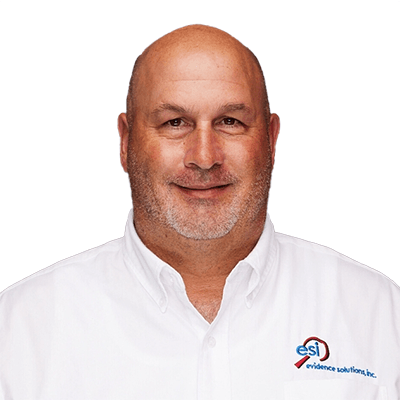
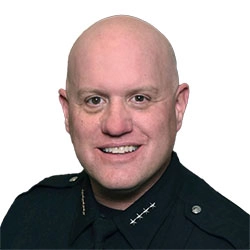
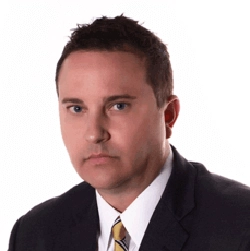





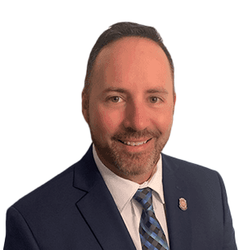
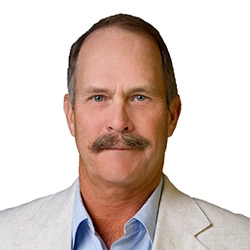
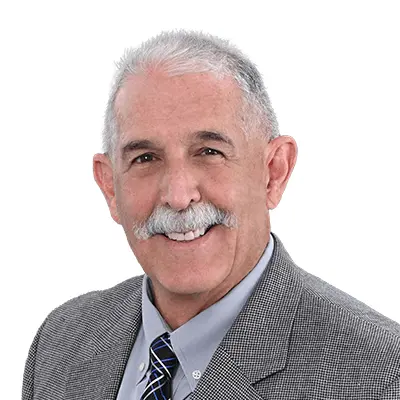
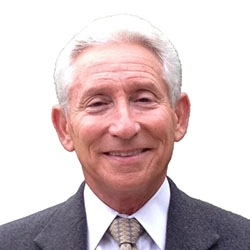

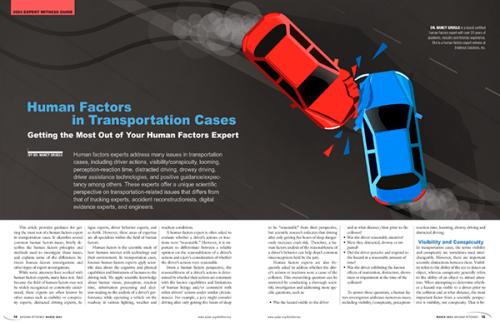
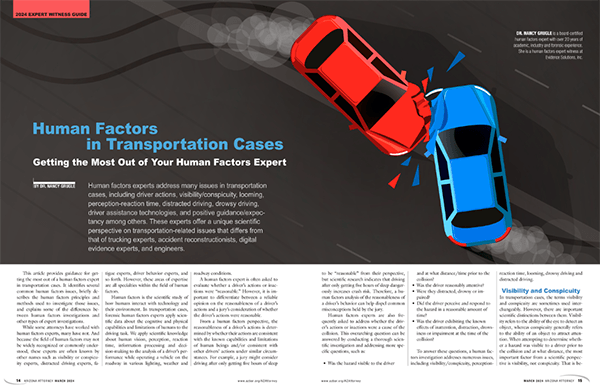

 Note: This is a generalization of a case. Some details have been changed.
Note: This is a generalization of a case. Some details have been changed.
 In a recent case involving a fleet vehicle collision, a Texas couple found themselves unexpectedly rear-ended in their Jeep Wrangler near Austin, Texas. The striking vehicle was operated by a construction worker driving a Chevrolet 3500 flatbed. The incident, which occurred at 10 am on a Saturday morning, grew more egregious when police arrived for the crash investigation and noted that the driver of the Chevrolet 3500 had been drinking. He was arrested for Driving While Intoxicated (DWI), and remarkably, his blood alcohol level was still a staggering .20%, despite the test being administered several hours after the incident. This indicates that his blood alcohol level at the time of the crash would have been even higher.
In a recent case involving a fleet vehicle collision, a Texas couple found themselves unexpectedly rear-ended in their Jeep Wrangler near Austin, Texas. The striking vehicle was operated by a construction worker driving a Chevrolet 3500 flatbed. The incident, which occurred at 10 am on a Saturday morning, grew more egregious when police arrived for the crash investigation and noted that the driver of the Chevrolet 3500 had been drinking. He was arrested for Driving While Intoxicated (DWI), and remarkably, his blood alcohol level was still a staggering .20%, despite the test being administered several hours after the incident. This indicates that his blood alcohol level at the time of the crash would have been even higher.